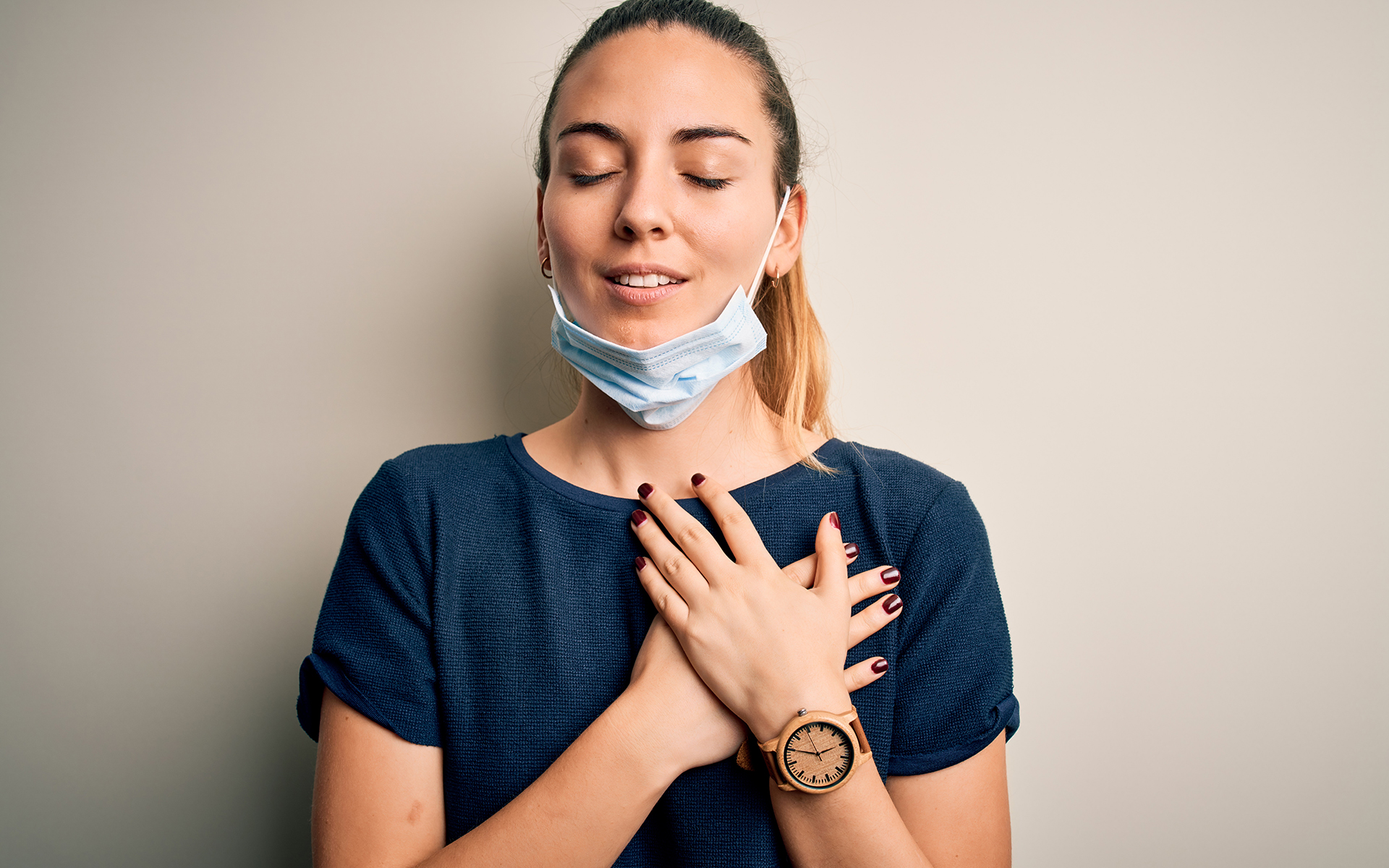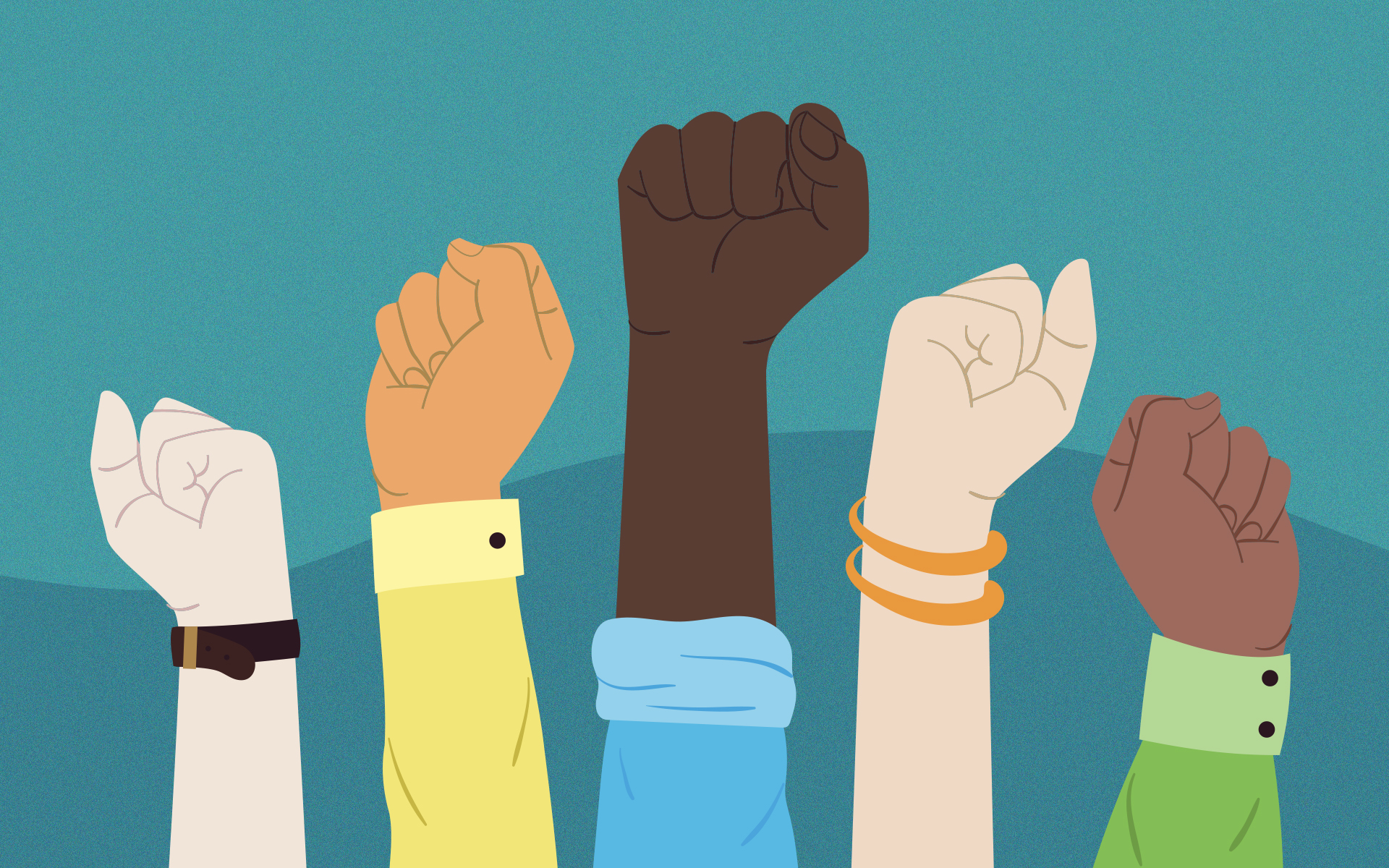My inbox is flooded with news about the coronavirus outbreak. Every hour, I’m hearing about how many people are infected and dying, how woefully unprepared we are for this pandemic, and how the economy is tanking. It’s enough to make my head explode with panic and dread.
Of course, I want to stay informed, and it’s important to know what I can do to help prevent the spread of the infection. How can I do that without feeling overwhelmed? Is there a better way to consume the news?
It turns out that there is, according to media experts and researchers. Taking in a constant stream of alarming news increases your stress and anxiety—and has long-term consequences for your physical health, too. The key is to balance your media diet with news stories that are more inspiring or offer solutions, and then share them with friends and family. Taking those steps will help instill a sense of hope and personal agency, in yourself and others.
Taking in constant bad news is unhealthy
Of course, we need to know what’s going on with the coronavirus pandemic in order to make good decisions, like washing our hands regularly and social distancing. Those actions help us fight the spread of the disease. But, as a new paper published in Health Psychology suggests, constantly reading negative, sensationalist news stories can have long-term consequences for our well-being.
Alison Holman and her colleagues at UC Irvine have studied past epidemics and disasters to see how news reporting affects people. They found that those who read or saw more sensationalist, repetitive news stories experienced acute stress and other symptoms similar to post-traumatic stress disorder, with poorer health up to three years later.
These effects can be even harsher for people in communities that have already suffered disaster. In one study, Holman and her colleagues found that New Yorkers (who lived through 9/11) following sensationalist news stories about the Boston Marathon bombings had as much stress as people who actually lived in Boston where the bombings took place.
“Media coverage tends toward sensationalism, showing repeated images designed to grab your attention, and repeated exposure to that is not good for our mental health,” says Holman. “This can become a distress cycle, where people have a lot of fears about what the future looks like, and it just gets worse and worse as people continue to pay too much attention to the media.”
Holman also points out how a diet of bad news hurts our ability to make good decisions—especially under circumstances where the future seems uncertain or ambiguous. In the current epidemic, she sees this playing out by people hoarding products like toilet paper or, more seriously, protective masks needed by health care workers. Overblown fears lead people to run to the doctor when they have even mild symptoms of infection, thereby clogging up health care facilities needed for more serious cases.
A diet of bad news hurts our ability to make good decisions—especially under circumstances where the future seems uncertain or ambiguous.
Luckily, there are ways to get factual information without gorging ourselves on negative news. Holman recommends going to The Centers for Disease Control and the World Health Organization websites for information about the virus that is less alarmist and also non-partisan. Reading the facts about the disease and what we can do to prevent its spread—“maybe once a day,” suggests Holman—is infinitely better for us than scrolling through our newsfeeds on social media every hour.
“Don’t let yourself sit there in front of your computer and constantly look up and refresh your screen to see what’s going on,” says Holman. “Things are changing fast, but we already know what we need to do.”
How our brains process news
Still, it’s hard to pull our attention away from fear-inducing news; our minds fight us. As John Tierney, coauthor of The Power of Bad, explains, our brains have a negativity bias that’s designed to root out danger so that we can stay safe. We can’t help but be hijacked by bad news stories, and news sources want to capitalize on that by publishing the most sensational stories designed to invoke fear.
As an example, he points to the many articles and websites monitoring death rates from COVID-19 and speculating on how bad it could get without having all of the facts—like how many real cases there are in a community, including people exposed to the virus without showing symptoms. Following this barrage of misinformation might incite fear rather than rational responses to the pandemic, Tierney says.
Media researcher Karen McIntyre of Virginia Commonwealth University also warns us that negative news can lead us to be less kind and helpful toward others, right at the time we need to come together the most. While research suggests that experiencing positive emotions can make us better friends and neighbors, consuming a lot of negative news leads people to be “less tolerant of others, engage in more antisocial behavior, trust people less, and criticize the media more,” she says. “All of these general, negative effects of negative news are just exacerbated during a time like this, when we’re seeing even more negative news.”
Sensationalist news is pretty hard to avoid, though—especially if you are tuned into social media. Social media has its upsides, of course, allowing us to check in with people we can’t see in person due to social isolation. But it can also be a firehose of bad news, where stories about the pandemic—whether accurate or not—are shared over and over again, perpetuating fear, anger, and hopelessness.
We can’t help but be hijacked by bad news stories, and news sources want to capitalize on that by publishing the most sensational stories designed to invoke fear.
As media expert Jeff Hancock of Stanford University warns, “Getting your news from news outlets in social media is problematic, because we’re still having a hard time distinguishing between reputable sources online and non-reputable ones.”
To avoid being taken for an emotional ride by these “highly emotional, clickbait, misinformation-type stories,” he suggests avoiding them altogether and reading only news stories written by reputable journalists or looking to science experts to provide accurate information about the pandemic—like this site from John Hopkins University.
We also need to be careful about how a constant diet of negative news might affect our rational response to the pandemic. Cognitive biases impact how we process news, too, according to McIntyre. For example, our brain’s confirmation bias drives us to seek out only information that’s aligned with what we already believe and to discredit the rest; the anchoring bias means we rely heavily on the first piece of information we hear and ignore what comes after. Biases like these can prevent us from learning from the ever-changing news around the pandemic, hurting our chances to fight it effectively.
The optimism bias—thinking bad things are less likely to happen to us than to other people—is a problem, too, says McIntyre. If you think you’re unlikely to get COVID-19, you may be less inclined to take the necessary precautions to prevent it from spreading. So, we need to be careful about how these biases make us pay attention to certain types of news and ignore others.
“Being aware of these biases can help you prevent yourself from falling prey to them,” she says.
Why to share uplifting, solution-based news
What can we do instead? We can be more selective about our media consumption and use it to promote more kindness, connection, and inspiration.
If you are going to use social media, Hancock suggests using it to see how the people you care about are doing, how you can keep calm, or how to help others in need—especially your nearby neighbors and communities.
“Media can show us what people are doing so that we might feel like it’s not just us—not just me—stuck at home,” he says. “If I can see what other people are doing, it can make us feel like we’re all in the same boat, and I think that can be really powerful.”
While fear leaves people feeling helpless and exhausted, seeing that “we’re in it together” helps ease the emotional burden we feel and encourages more agency—the sense that we can do something constructive to fight the pandemic. You can encourage more coming together, McIntyre suggests, by reading what’s called “solutions-based journalism”—stories that go into depth around a problem, but also let you know what’s being done to solve the problem effectively.
Fear leaves people feeling helpless and exhausted, seeing that “we’re in it together” helps ease the emotional burden we feel and encourages more agency—the sense that we can do something constructive to fight the pandemic.
“When you see what’s working—that the news isn’t all bad, and there are a lot of things that the world is doing well right now—that helps ease the helplessness and hopelessness you may be feeling,” she says. And it can lead to more altruism, too, because “reading a news story about how somebody is doing something to help inspires you to want to do something to help, too.”
Where can people go to get this kind of news? McIntyre suggests the Solutions Journalism Network, where you can find a large database of solution-focused news stories—including stories related to the virus. She also mentions that several newspapers, including the New York Times and the Guardian, have sections that focus on uplifting news stories, which can help us break up our diet of bad news.
Though most newspapers operate on the assumption that “if it bleeds, it leads,” it may surprise you to know that positive, in-depth reporting engages readers more than sensationalist stories, says McIntyre. Research shows that people share uplifting stories more, and they keep their eyes on the page longer when they read solution-based stories—all the more reason for news outlets to provide more positive and in-depth coverage and for all of us to share it.
“It’s important that we do try to read the news thoroughly and listen to all the facts,” says McIntyre. “Making sure that you’re checking your sources, that you’re going to reliable sources to get information, and that you get a mix of sources, incorporating some constructive news into your mix—all of these things help.”
Staying informed without alarming yourself is not just important for you, but for everyone. If we can all do our part to put ourselves on what Tierney calls a “low bad news” diet, no doubt we will get through this pandemic together better and help preserve our own mental health in the process.
This article originally appeared on Greater Good, the online magazine of UC Berkeley’s Greater Good Science Center, one of Mindful’s partners. View the original article.
Read more
Zoom Exhaustion is Real. Here Are Six Ways to Find Balance and Stay Connected
Steven Hickman, Psy.D., executive director of the Center for Mindful Self-Compassion, offers this timely perspective on managing our new virtual reality.
Read More
Rethinking Our Self-Care During the Pandemic
Shelly Tygielski, who has connected 10,000 families (and counting) to support each other during the pandemic, explains why intentional care for yourself is also needed, now more than ever.
Read More
Keeping a Cool Head and Warm Heart in Challenging Times
Cooling the fires of reactivity by cultivating equanimity so we can find steadier ground on which we can stand to meet the challenges of the day.
Read More










